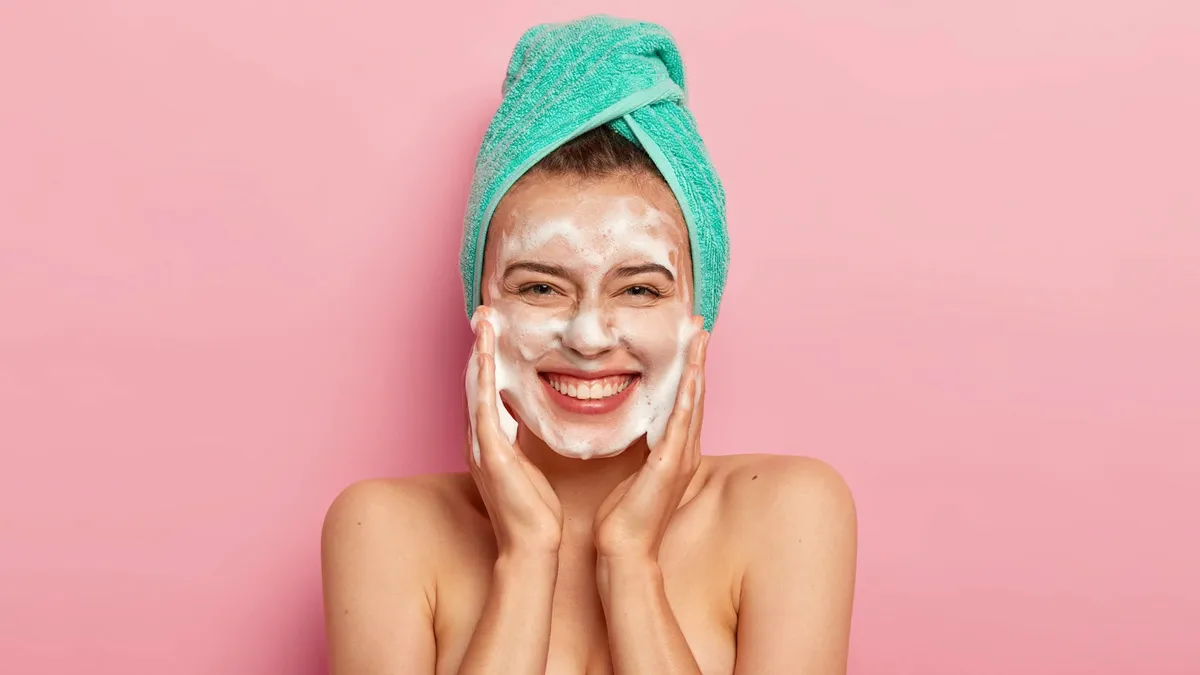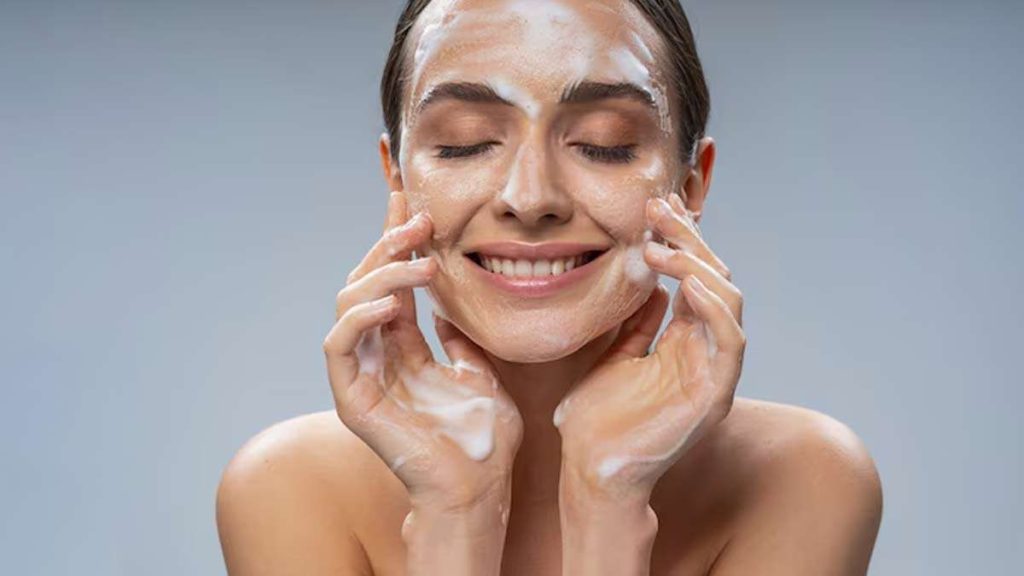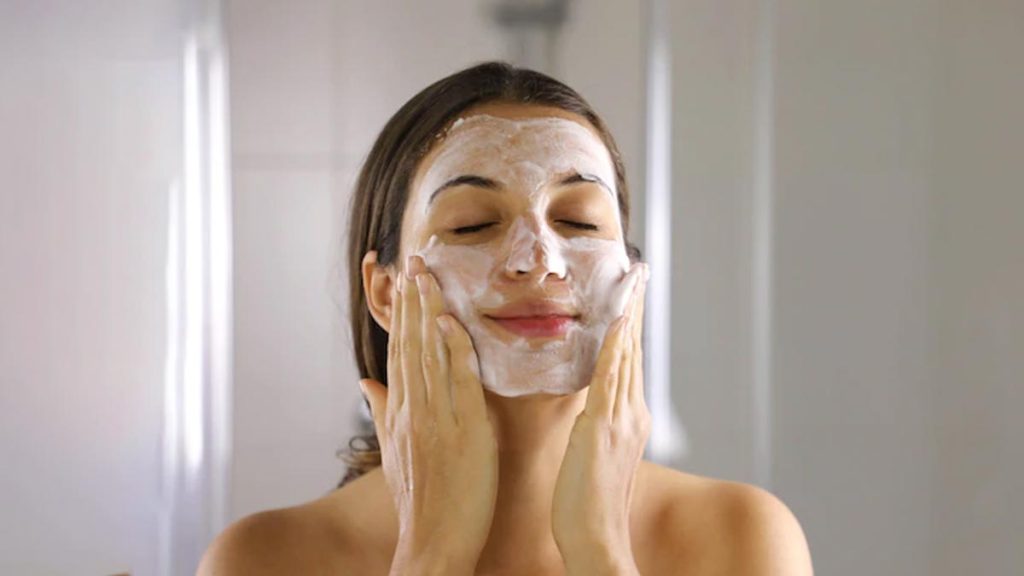
In the world of skincare, we often tend to turn to the products our favourite infulencers market or what is trending. In the same fiasco, the foaming face wash often feels like a classic go-to. It is beleived that rich lather gives a sense of deep cleansing an it's like you’re washing away all the oil, grime, and stress of the day. But is that satisfying foam secretly damaging your skin? Lately, skincare experts have been raising concerns about whether foaming cleansers, especially those with harsh ingredients, might be doing more harm than good.
Table of Content:-
To unstand the facts, we reached out to our experts, Dr Sanjeev Gulati, Department of Dermatology, Sharda Hospital - Noida, and here is what he shared with us.
Why Do Cleansers Foam?
Foam in soaps and cleansers typically results from surfactants, substances that encapsulate oil and grime so they can be washed away with water. Typical surfactants are Sodium Lauryl Sulfate (SLS) and Sodium Laureth Sulfate (SLES), which are notorious for forming rich, foamy lather.
Though surfactants work well to remove oil and dirt, they don't have a sense of discrimination. They tend to strip natural oils (sebum) from your skin that your skin truly needs to remain healthy and hydrated.
Also Read: Always Wake Up Tired? Here's What You Can Do

How Can Foaming Products Harm Your Skin?
1. Removes Natural Moisture Barrier
Your skin has a built-in protective layer known as the lipid barrier that seals in moisture and keeps irritants out. Foaming products over-cleansing can disrupt this barrier, resulting in dryness, sensitivity, and even premature aging.
2. Triggers Irritation and Redness
Individuals with dry or sensitive skin types are especially susceptible. Substances such as SLS can cause redness, itchiness, and breakouts, particularly in individuals who have conditions such as eczema, rosacea, or dermatitis.
3. Can Cause Overproduction of Oil
Ironically, removing too much oil can have the ironic effect of causing your skin to produce even more oil to balance things out, potentially further aggravating acne in oily skin types.
Do All Foaming Cleansers Damage Skin?
According to Dr Gulatu, no. Some newer foaming cleansers employ milder, sulfate-free surfactants such as cocamidopropyl betaine or amino acid-based cleansers that are effective without being so harsh. It's all about the formula and your skin type.
Who Should Be Wary of Foaming Cleansers?
- Dry or Sensitive Skin Types: Foaming products can further exacerbate dryness and irritation. Cream or gel-type cleansers might be less risky.
- Mature Skin: Skin naturally produces less oil as it ages. Stripping it further will cause it to age faster.
- Individuals with Skin Conditions: Individuals with eczema, psoriasis, or rosacea should steer clear of harsh foaming cleansers.
Are There Benefits to Foaming Cleansers?
For oily, acne-prone skin, mild foaming cleansers can be beneficial to remove excess sebum and clear up breakouts, as long as they are non-stripping and sulfate-free.

How to Choose the Right Cleanser for Your Skin
- Read the Ingredients: Seek sulfate-free products and moisturizing components such as glycerin, ceramides, or aloe vera.
- Listen to Your Skin: If the skin of yours feels tight, itchy, or scaly following a wash, it's a clue that your cleanser is too harsh.
- Choose pH-Balanced Products: A pH between 4.5 and 5.5 is best for keeping skin healthy.
Bottomline
Foaming washes and soaps are not evil in and of themselves, but they can cause problems if they contain irritating surfactants or if you have dry, sensitive, or mature skin. The solution is to select gentle, skin-type-similar products and pay attention to maintaining your skin's natural barrier.
The next time you grab for that foamy cleanser, ask yourself: Does my skin actually need to be this squeaky-clean? And, always remember that a gentle cleaning is the healthiest way to clean.
Also watch this video
How we keep this article up to date:
We work with experts and keep a close eye on the latest in health and wellness. Whenever there is a new research or helpful information, we update our articles with accurate and useful advice.
Current Version